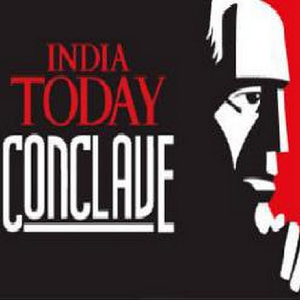Ratul Puri, Chairman, Hindustan Power Projects Pvt. Ltd, kick-started the session titled The Disruptors: Technology and Opportunity on a promising note, when he spoke of twelve technologies which have been identified which are likely to add between USD 0.5-1 trillion to the Indian economy. IT was a fitting introduction to a session of young disruptors, who are paving the way for new developments in the space of technology to create opportunities.

Rohan Murty took over as he analysed the promises and challenges of artificial intelligence. He opened his presentation with an image of 18 women on the screen, who were professional computers. The word computer was a job title well before it was a machine, he said. He spoke of a telescope run by AI, which makes discoveries of the night sky, of haikus and artwork created by machines and revealed that through AI, a task completed by 1,000 people, could within 12 months, be completed by just nine.
However, he also spoke of the shortcomings of AI as it stands now-it cannot identify basic images, it does not have fundamental human traits, there are trust issues and he reminded the audience of a twitter account created by Microsoft, run by AI, which tweeted racist and bigoted tweets and eventually had to be taken down.
Ananya Birla introduced the importance of human-tech synergy, when she said that consumer behaviour was the biggest challenge when moving towards a cashless economy. Her micro-finance company Svatantra Microfinance functions on a completely cashless process and creates a link between the user’s adhar payment scheme and their bank account. The primary challenge to a cashless economy is consumer behaviour. People are so used to cash that they have trust issues and there are literacy problems, she said.
From demonetisation, the conversation moved to autonomous vehicles. While saying that the idea of autonomous cars is ‘cool’, Manasi Kirloskar dismissed any prospect of such cars in India in the foreseeable future. ‘70 per cent of electricity in India is generated from coal fire, which leaves harmful emissions. Electric cars are not eco-friendly‘, she said. She also expressed concern over issues of interrupted broadband systems, virus attacks and hacking, all of which could pose a serious threat to the efficient functioning of autonomous cars. She also brought up ethical concerns-‘In case of an accidents, who does the car protect? The passengers or the pedestrians?‘ she said.
While humans are better off behind the steering wheel for now, truly riving the retail sector is e-commerce, said Shashwat Goenka. ‘Ecommerce is the inevitable future, since we are impatient as consumers. But, we are Indians and our purchase psychology is tuned into touch and feel,’ he said. ‘Brick and mortar will continue to exist,’ he added. Goenka also spoke about the need for re-skilling employees in a tech enabled environment and how it’s the need of the hour. The women ended the session on an astute note. ‘We need technology that will facilitate the efficient access to food, water, shelter, education and healthcare,’ said Kirloskar. ‘The vision is to reach a platform where technology and human beings optimize each other’, Birla concluded.
Big Ideas
Artificial Intelligence
While artificial intelligence can take over a lot of conventionally human activities such as exploring their place in the universe, making art and improving efficiency [a task completed by 1,000 people, could within 12 months, be completed by just nine], it still lacks basic human traits and the lack of trust towards AI poses a great challenge.
Self-driven cars
It is necessary to create a system and set policies for self-driven cars. Presently, they are neither eco-friendly, nor does India have the physical or ethical infrastructure in place to make them a reality.
Going cashless
Consumer behaviour needs to be addressed in order for the country to go completely cashless. Trust, literacy and the need to touch and feel a transaction are impediments. Svatantra Microfinance creates a cashless process where Aadhar payment schemes are linked with the user’s bank accounts. They use the biometric system and eventually work towards reducing KYCs etc.
About India Today Conclave
Started as part of India Today’s 25th anniversary, India Today Conclave was designed as a meeting point for the best minds from India and around the world to map the geopolitical and economic future of the country. In its inaugural year the theme was India Tomorrow 2002: Opportunities and Threats with Vice President of the USA Al Gore as the chief Guest. The speakers who have been part of this conference each year are current and former heads of state, Nobel Laureates, spiritual leaders, industry captains, social workers, economists, authors, academics, scientist, strategists, activists, cine directors, actors and sportspersons. The past conferences can be accessed here

